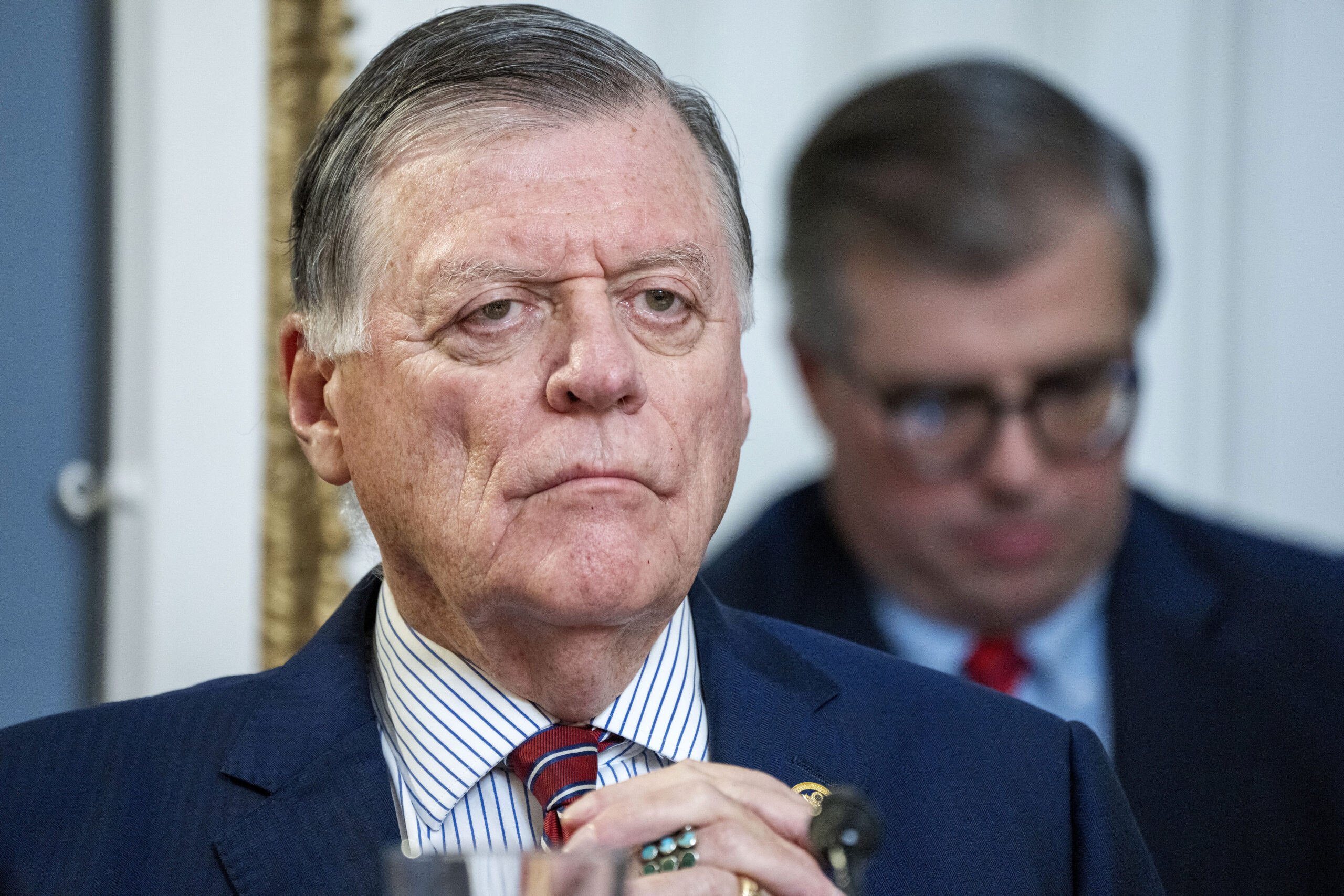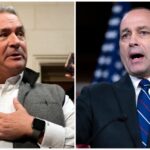

EXCLUSIVE — House Rules Committee Chairman Tom Cole (R-OK) advised the Biden administration and Maryland officials to “take their time” while considering how much federal aid to ask for in the wake of the collapse of the Francis Scott Key Bridge.
Cole said in an interview with the Washington Examiner on Wednesday that “aid is flowing” to Baltimore after the bridge collapse, including debris removal funds that have already been approved by the Transportation Department. He also said emergency repair money will be available as soon as a figure is determined.
“But the point is, the funds are there so that nothing should be delayed in dealing with his tragedy,” the congressman said. “After that, you know, we’re waiting, obviously, for the administration to present a request. And my advice to them and honestly, people in Maryland, was ‘take your time.’
“We have the money to deal with the immediate problem,” Cole added. “The danger in a situation like this is you’ll always underestimate and ask for too little, and not think through what the full scope of the crisis is.”
The Biden administration announced $60 million in “quick release” emergency relief funds after receiving a request from Gov. Wes Moore (D-MD). President Joe Biden, who is scheduled to visit Baltimore on Friday, is likely to request additional funding for the bridge’s repair from Congress, which Cole said will be discussed and approved in a bipartisan fashion.
“We’re gonna sit down and work with our colleagues,” Cole said. “We recognize this is a federal disaster — it’s a national disaster, it has a federal component, and we’re going to work with people and try and get right.”
Cole related the federal response to one similar to the destruction left by Hurricane Sandy, in which it took Congress around 90 days to approve funding. The Oklahoma Republican also drew on his own experience dealing with disasters and catastrophic events, such as the Oklahoma City bombing in 1995 when he was a liaison with the federal government.
“I know a lot of dealing with disasters from both ends of this: from the state end as a state official, and from the federal end as somebody that has to think through how and what to fund,” Cole said.
Members of Congress on both sides of the aisle have expressed their opinions as to what level of involvement the federal government should have in addressing the bridge collapse.
Some House Republicans have already come out against the idea of a federal aid bill. Rep. Dan Meuser (R-PA) was quick to blast Biden’s initial pledge for the federal government to be responsible for the reconstruction, saying that the only reaction “tends to be to spend.” He also indicated that Singapore, where the cargo ship that caused the collapse is registered, should provide funds.
Maryland Democrats and Rep. Andy Harris (R-MD) have come out in support of the Biden administration approving emergency federal funds for the collapse, with some rebuking Meuser’s comments as “short-sighted.”
“By claiming that these federal resources are nothing more than an unnecessary political favor, those who oppose this funding once again reveal how they are actively rooting against America’s economic success,” Rep. Steny Hoyer (D-MD) previously told the Washington Examiner. “Instead, they ought to work with us to ensure American families don’t have to contend with rising prices from supply-chain disruption.”
There are several avenues that lawmakers can take, Cole said. Funds that have been appropriated can be used to address the disaster, but that also would be “taking them away from someplace else.” Another option can be a classic disaster response using obligated funds and essentially “writing the check,” which he said is not unusual, as it’s been done for several disasters in the past.
Regardless of what method is used to create a funding bill, Cole is optimistic that an aid vote on the House floor will receive bipartisan support. He said he supports moving funds around in a “fiscally responsible way” if necessary but does not support using the aid legislation as a political tool.
CLICK HERE TO READ MORE FROM THE WASHINGTON EXAMINER
“Sandy was controversial just for some people, but what we got done what we need to do there,” Cole said. “We’ll do the same thing here.
“At the end of the day, the important thing is to make sure the work gets done, it gets done in a timely fashion, and nobody uses a disaster as a weapon against somebody else,” the congressman added.







